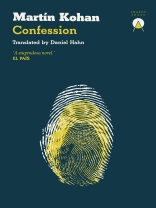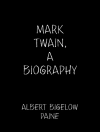Brutal and overwhelming, Confession wrestles with the legacy of Argentina’s past and the passions of one young girl.
When Mirta López looks out the dining room window, she sees a slim, self-possessed older boy on his way back from school. It’s 1941 in provincial Argentina, and the sight has awakened in her the first uncertain, unnerving vibrations of desire. Naturally, she confesses. But she cannot stop herself.
Over thirty years later, in 1977, that same young man is a general, leading the ruling military junta of a country, and a cell of young revolutionaries plot an audacious attack on him, and the regime.
Writing from the present into the past, Martín Kohan maps the contours of Argentina’s 20th century, but finds his centre in one woman – devout, headstrong, lit up with ideas of right and wrong – not the grand historical figures of her lifetime’s omnipresent, brutalizing history. And yet, there is great beauty in Confession , its decades and landscapes, and the legacy of love and guilt, pieties religious and civic, that play out in one family and against the background of dictatorship’s traumas.
About the author
Daniel Hahn is a writer, editor and translator with over one hundred books to his name. His translations (from Portuguese, Spanish and French) include fiction from Europe, Africa and the Americas and non-fiction by writers ranging from Portuguese Nobel laureate José Saramago to Brazilian footballer Pelé. Recent books include the new Oxford Companion to Children’s Literature and translations of Julián Fuks’ Resistance and Occupation . He is a former chair of the Society of Authors and is presently on the board of a number of organisations that deal with literature, literacy, translation and free expression. In 2021 Daniel was made an OBE for his services to literature.












